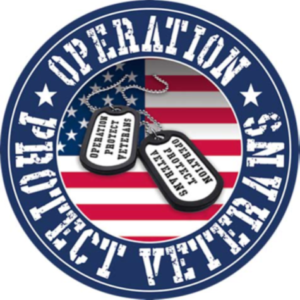USPS® Promotes Awareness through National Consumer Protection Week
The Postal Service™ is partnering with the U.S. Postal Inspection Service (USPIS) to promote National Consumer Protection Week (NCPW) March 4 -10, 2018. NCPW is a federal program that provides information and services to consumers in an effort to improve their ability to protect themselves and loved ones from fraud. As we embark upon this awareness campaign, it is vital that we all do our part in helping to combat fraud.
The purpose of NCPW is to educate employees as well as the general public about scams that, in particular, target older Americans. We all have a responsibility to heighten our own awareness in order to help others that may be susceptible and easily targeted. Vulnerability to scams is an unfortunate part of aging. Each day we learn of seniors that are being taken advantage of by expert con artists that propose believable scams by telephone, through the mail and over the internet.
This year, the U.S. Inspection Service announced the launch of Operation Protect Veterans – a national campaign to warn those who have served in the military about scams and fraud schemes that target veterans.
Fraud prevention is key
We can start by setting aside time to talk to friends and family members, specifically seniors, to devise a plan to avoid fraudulent schemes and stay financially safe. The USPIS has an informative brochure on discussing prevention with loved ones. Review some other helpful tips to protect your information below.
How to prevent fraud
– Acquire non-published telephone numbers
– Utilize answering machines with a large caller ID display
– Only answer calls identified from known callers
– Avoid providing name and contact information to strangers
– Never offer Social Security numbers or credit card information to unknown sources
The Postal Inspection Service has short videos addressing some common elements of consumer protection such as scams that target seniors, dealing with lottery fraud and working with older adults to safeguard their information. The videos are available at the USPIS YouTube Channel and additional tips can be found at DeliveringTrust.com.
Get involved with your community
There are numerous means by which to reach out to your community. Many local Post Office™ branches host consumer protection events. Check with yours to see if an event is being planned. Here are some other ways to get involved:
Plan an event – Host a forum, workshop or seminar in your community and share the tools vital for today’s economy. Partner with local organizations such as a police department or library.
Write about it – Send an article to local organizations so they can promote consumer education through their publications.
Spread the word – Add a comment about NCPW to the social media outlets you regularly utilize. Encourage your audience to tell friends, family, colleagues and neighbors about NCPW. Word of mouth is powerful!
Contact – Connect with a local television, radio or cable access station. Offer to talk about a consumer protection topic you care about, or tell their audience about your NCPW events.
Education, awareness, and safeguarding information
Crooks use clever schemes to defraud millions of people every year. They often combine sophisticated technology with age-old tricks to get people to send money or give out personal information. They add new twists to old schemes and pressure people to make important decisions on the spot. One thing that never changes: they follow headlines — and money.
An important thing to remember is once personal contact and financial information is out there, we are at risk for scammers and con artists to prey again and again. Scammers are always changing their tactics and devising clever and legitimate-sounding plans to trick consumers into revealing sensitive information. Learning about, protecting against and reporting fraudulent activity can help reduce the risk of becoming a victim of scams.
Let’s all do our part to protect ourselves and our loved ones by keeping up with the current trend of scam strategies and sharing this information accordingly.
